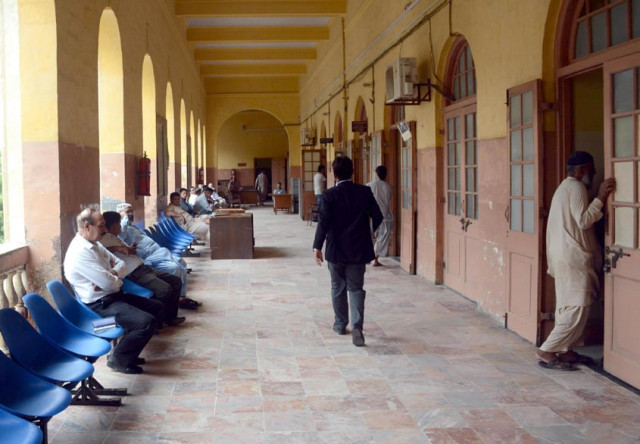Terror convict awarded bar council licence
Shah was convicted by a court in the US and awarded a sentence of six-and-a-half years

An advocate convicted in a terror case has been able to get his licence from Sindh Bar Council (SBC) to practice the law.
As per Section 108-B(d) of The Pakistan Legal Practitioners and Bar Councils Rules, 1976, it is required for the all law graduates to submit an affidavit disclosing any past conviction in any country.
The Pakistan Bar Council also prohibits any such person to be admitted as an advocate if he has been convicted for an offence involving moral turpitude by a court.
According to the document available with The Express Tribune, Syed Maaz Shah was convicted by a court in the United States and was awarded a sentence of six-and-a-half years in US Federal Prison.
The court found him guilty of possessing and firing a military-style weapon. As per the FBI investigation transcription released by the US Department of Justice, Shah stated that it was his obligation to fight oppressive and corrupt governments such as the United States.
The US Attorney’s Office in its News Release stated that Shah felt it was his duty to prepare for ‘Jihad’.
In the case United States versus Shah, the transcript of the Sentencing Hearing records the observation of the sitting judge that Shah’s conduct was calculated to conspiracy to murder, kidnap or maim persons abroad and killing or attempted killing of officers and employees of the United States.
Talking to The Express Tribune, Shah said: “it was an old story.” He said that he had already submitted his reply to a similar complaint lodged by a student with the SBC.
“I was innocent and I had not done anything wrong [in US] and you know it is not so difficult to make a fake case against anyone,” he explained.
Talking to The Express Tribune, SBC Vice Chairman Zulfiqar Ali Khan Jalbani said that stern action could be taken against Shah. “His licence could be cancelled if found guilty [for hiding the facts],” he added.
Jalbani said that no one has lodged any complaint against Shah. He also said that there were over 37,000 lawyers and he did not know everyone personally. But, he added, there is a due process and the committee scrutinises such allegations when it gets any formal complaint.
“Merely allegations are not enough to restrict one from getting the licence,” another senior lawyer said. He noted that the licence will be cancelled in case allegations are proven. “He will not be able to practice the law then.”



















COMMENTS
Comments are moderated and generally will be posted if they are on-topic and not abusive.
For more information, please see our Comments FAQ